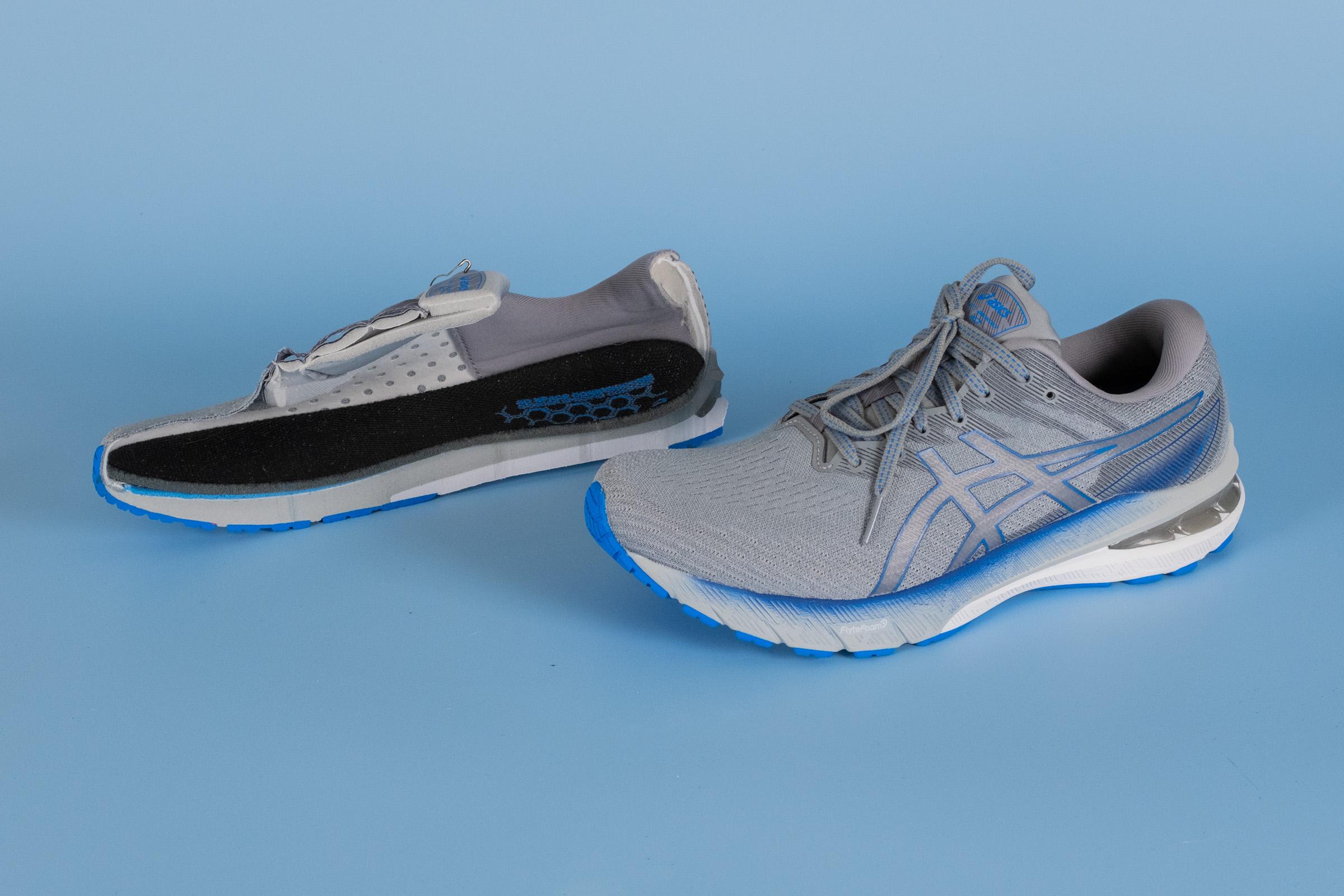Our verdict
Pros
- Lightweight stability shoe
- Responsive ride
- Comfortable
- Wide toe box
- Good lockdown
- Durable outsole
- Price
Cons
- Overly padded tongue
- Thick ankle collar
- Runs warm
- Feels a touch long
Audience verdict
- Top 29% in road running shoes
- Top 23% in stability running shoes
Comparison
The most similar running shoes compared
+ + Add a shoe | |||||
|---|---|---|---|---|---|
| Audience score | 89 Great! | 87 Great! | 83 Good! | 83 Good! | |
| Price | $100 | $120 | $170 | $140 | |
| Pace | Daily running | Daily running | Daily running | Daily running | |
| Shock absorption | - | Moderate | Low | High | |
| Energy return | - | High | Low | Moderate | |
| Traction | - | - | Moderate | High | |
| Arch support | Stability | Stability | Stability | Stability | |
| Weight lab Weight brand | 9.9 oz / 281g 9.9 oz / 280g | 10.3 oz / 293g 10.5 oz / 297g | 11.6 oz / 329g 11.3 oz / 320g | 9.5 oz / 269g 9.4 oz / 266g | |
| Drop lab Drop brand | 7.5 mm 8.0 mm | 9.8 mm 10.0 mm | 7.9 mm 10.0 mm | 8.7 mm 8.0 mm | |
| Strike pattern | Mid/forefoot | HeelMid/forefoot | Mid/forefoot | HeelMid/forefoot | |
| Size | True to size | True to size | True to size | True to size | |
| Midsole softness | - | Firm | Balanced | Soft | |
| Difference in midsole softness in cold | - | Small | Normal | Normal | |
| Toebox durability | - | Decent | Good | Decent | |
| Heel padding durability | - | Good | Good | Good | |
| Outsole durability | - | Bad | Good | Good | |
| Breathability | - | Warm | Moderate | Warm | |
| Width / fit | Medium | Medium | Narrow | Medium | |
| Toebox width | - | Wide | Medium | Narrow | |
| Stiffness | Stiff | Stiff | Moderate | Moderate | |
| Torsional rigidity | Moderate | Moderate | Stiff | Stiff | |
| Heel counter stiffness | Stiff | Moderate | Moderate | Stiff | |
| Heel lab Heel brand | 31.5 mm 22.0 mm | 32.9 mm 31.0 mm | 33.2 mm 31.0 mm | 36.9 mm 36.5 mm | |
| Forefoot lab Forefoot brand | 24.0 mm 14.0 mm | 23.1 mm 21.0 mm | 25.3 mm 21.0 mm | 28.2 mm 28.5 mm | |
| Widths available | NormalWideX-Wide | Normal | Normal | NormalWideX-Wide | |
| Orthotic friendly | ✓ | ✓ | ✓ | ✓ | |
| Season | - | All seasons | All seasons | All seasons | |
| Removable insole | ✓ | ✓ | ✓ | ✓ | |
| Ranking | #182 Top 27% | #172 Top 45% | #260 Bottom 32% | #281 Bottom 26% | |
| Popularity | #449 Bottom 34% | #354 Bottom 7% | #145 Top 38% | #69 Top 18% |
Size and fit
Size
ASICS GT 2000 10 fits true to size (19 votes).
Internal length
| GT 2000 10 | 275.2 mm |
| Average | 269.4 mm |
ASICS GT 2000 10 review and lab test
I don’t get too excited when a classic ASICS shoe arrives on my doorstep, they all look the same, they all feel the same, and it’s just not my style.
But, I have been insanely impressed with what ASICS has done in the past two years, so I figured I’d give the GT 2000 10 an honest appraisal before I wrote it off.
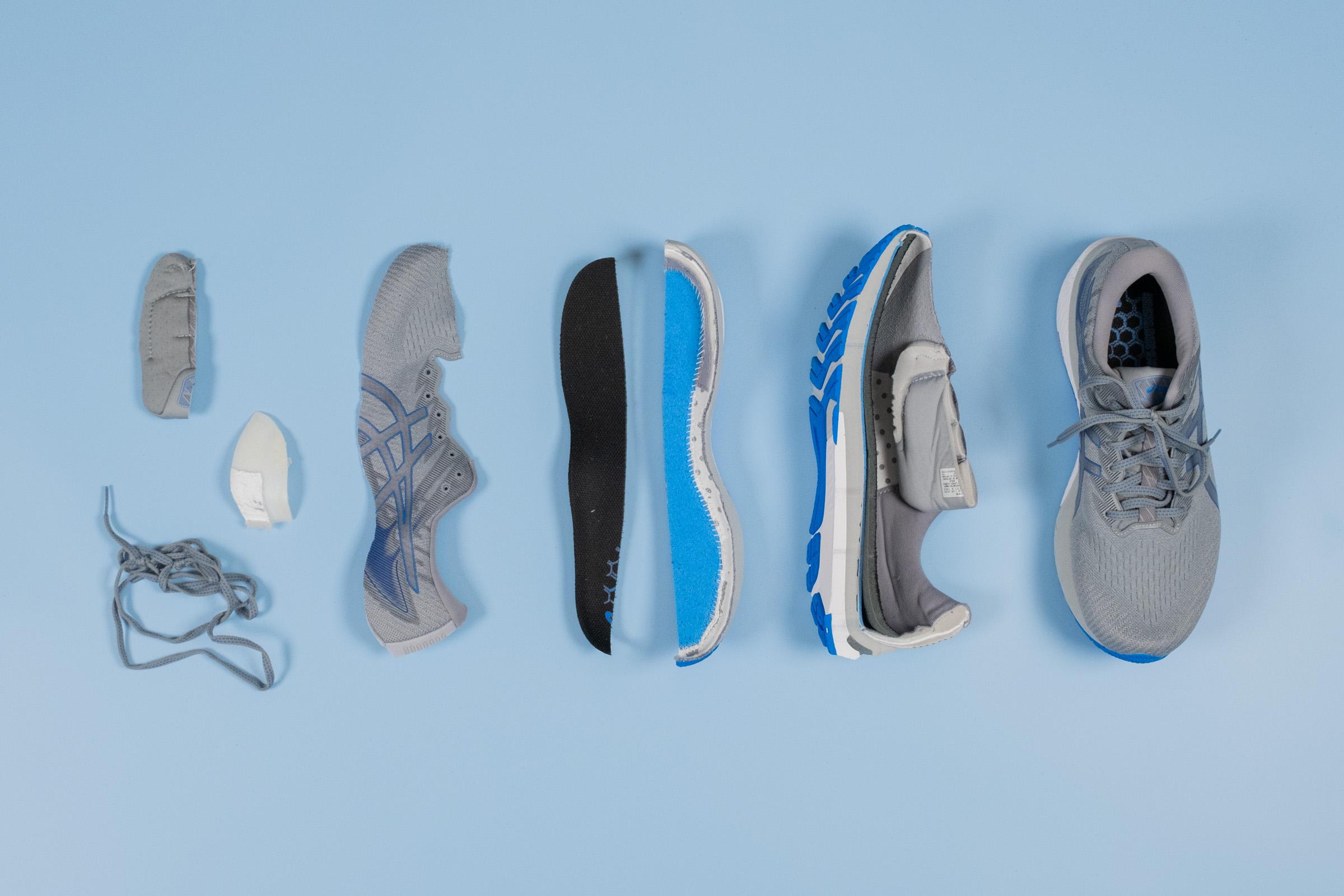
I’m impressed with the updates honestly. ASICS moving away from their vintage plastic post system in their stability shoes is a great move. I was actually impressed with the Kayano 28 (that’s a monumental feat since I don’t care for the Kayano) and I’ve been impressed with their Lite series (Kayano and Nimbus).
I also like the new midsole material, it’s a bit more bouncy and responsive, and the shoe feels like it has more dampening underfoot as you land. All positives.
There are of course some downsides, but they don’t relate to the updates, just my opinion of classic ASICS shoes, read on to see what those are.
Who should buy the ASICS GT 2000 10
The GT 2000 10 is ideal for runners on a budget or newer runners who need some arch or stability support. The shoe is comfortable, responsive, and won’t take any time to break in or get used to.
It’s a classic, do-it-all type of training shoe that can fit a lot of different needs for a wide variety of runners.
Who should not buy it
Not everyone needs this shoe though. It’s pretty specific actually and there are other shoes out there to fill different needs.
Don’t buy this shoe if:
- You want a higher-performing stability shoe. I suggest checking out the Gel Kayano 28 or Kayano Lite 3 for slightly higher-tech shoes.
- You don’t need stability control shoes. Check out the Gel Nimbus 26 or Nimbus Lite 3 for neutral runners.
- You want fast, race day shoes. This is a trainer, I would pick the Magic Speed or the MetaSpeed Sky instead.
Good lockdown but feels a touch long
The GT 2000 10 feels a touch long on my foot. I may consider going a half size down if I were keeping this shoe in my rotation.
The wide toe box and stretchy mesh upper feel amazing, they let my toes move a ton, but it’s almost too roomy up front and feels a touch sloppy on runs.
There is good lockdown over the top however and the heel surprisingly doesn’t have any slip for me, which is unique on a classically styled ASICS. The stiff heel counter and ample ankle padding usually don’t work for me, but my foot stayed put from the midfoot back.
One thing ASICS could do would be to gusset the tongue, all shoes need gussets in 2022, take note manufacturers!
Classic ASICS comfort in the GT 2000 10
ASICS tend to be super comfortable, especially without a plastic post digging into your arch. This shoe has a super wide toe box which comfort-wise I love.
The padded ankle and tongue are plush as hell as well. The tongue is 12.8mm thick! Average shoes are just 5.5mm thick in the tongue, and the ankle collar follows suit with what I would normally call “too much padding.” But it feels nice, I can’t lie.
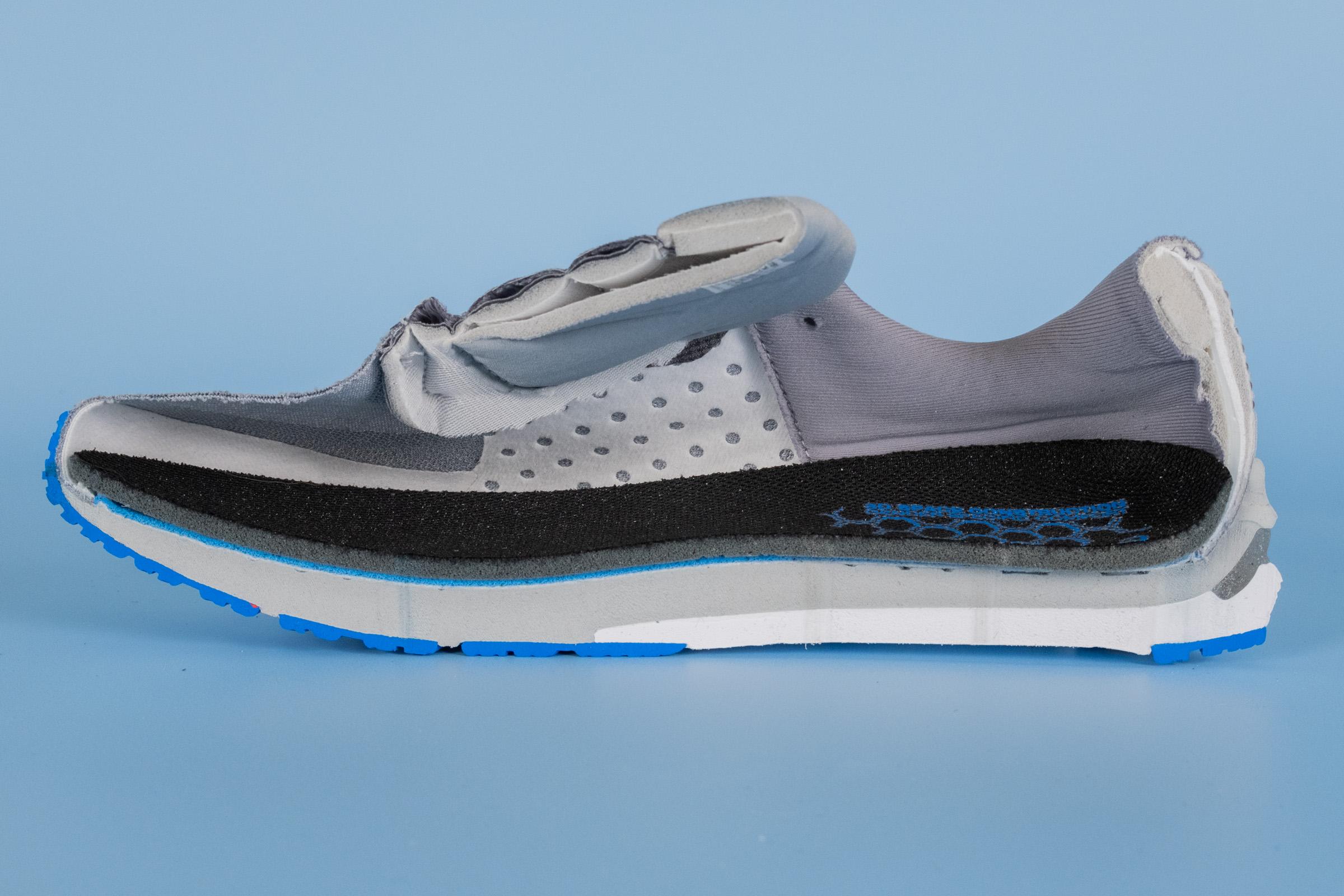
The dual-density foam design and LiteTruss system is a way better design than the old plastic Trusstic post system that ASICS used in past iterations, giving this shoe a bit more flex underfoot and a softer landing.
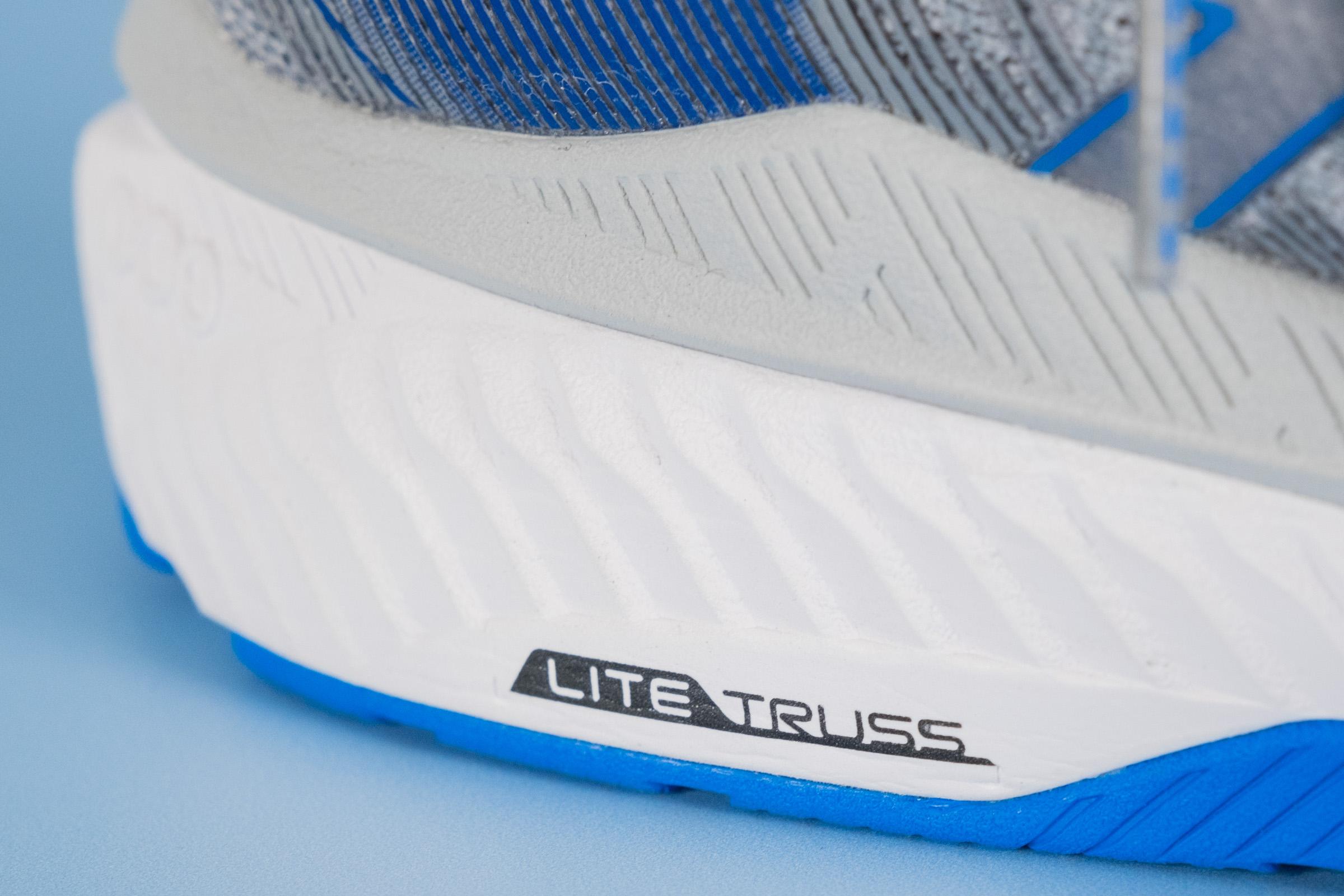
And of course, it had the classic Gel heel that had plenty of padding for heel strikers that need plushness as they trot down the road.
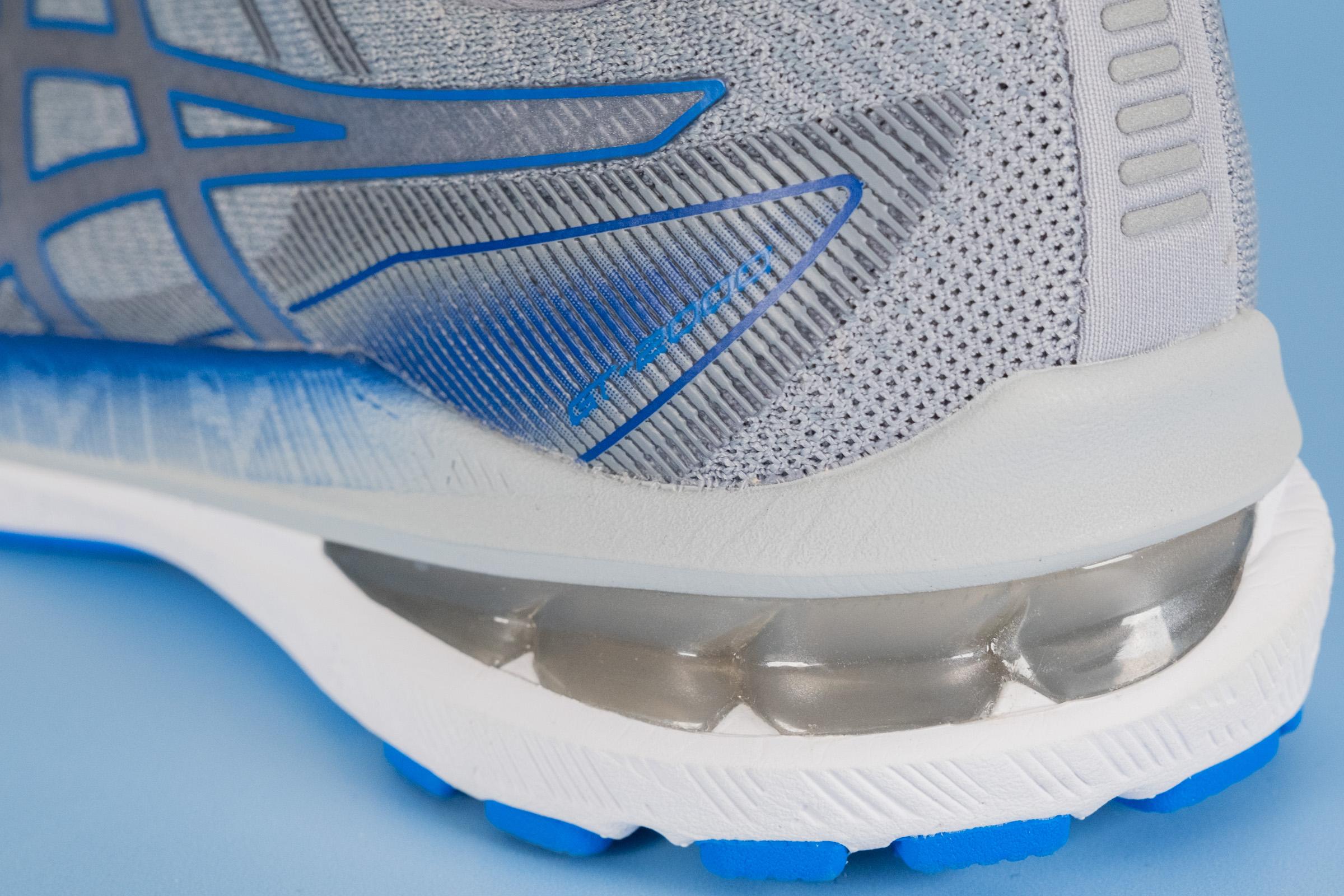
Smooth and consistent ride
Thanks to the upgrade to FlyteFoam Propel in this dual foam construction, the shoe feels softer and more responsive underfoot than past iterations.
It’s not super peppy, or overly mushy. It just falls in the middle. The shoe works, nothing fancy here, and if you need light stability it’s not a bad choice.
But it’s a forgotten middle child I think. Neutral runners can snag the Nimbus or Nimbus Lite and stability runners can choose the Kayano or Kayano Lite. Both the “Lite” versions mentioned are better than this shoe in every regard in my opinion which puts the GT 2000 10 just out of my buying preference.
It is lighter feeling and more responsive than most stability trainers, and can be used for daily runs, recovery days, some speed work (if needed), and I am sure you’ll see plenty of shoes like this out on race day too. It can kinda do it all in a Jack-of-all-trades, master-of-none style.
I like that ASICS didn’t ramp up the drop on these shoes. At 7.5mm (24mm in the forefoot and 31.5mm in the heel) it’s ideal for most runners and hard to be annoyed by if you like flatter shoes as it’s difficult to notice.
In the end, it’s a no-fuss, smooth and stable ride.
Open the GT 2000 10 box and go
No break-in period needed, or learning curve. This shoe feels and runs like the shoes you’ve had for decades albeit with a bit softer landing.
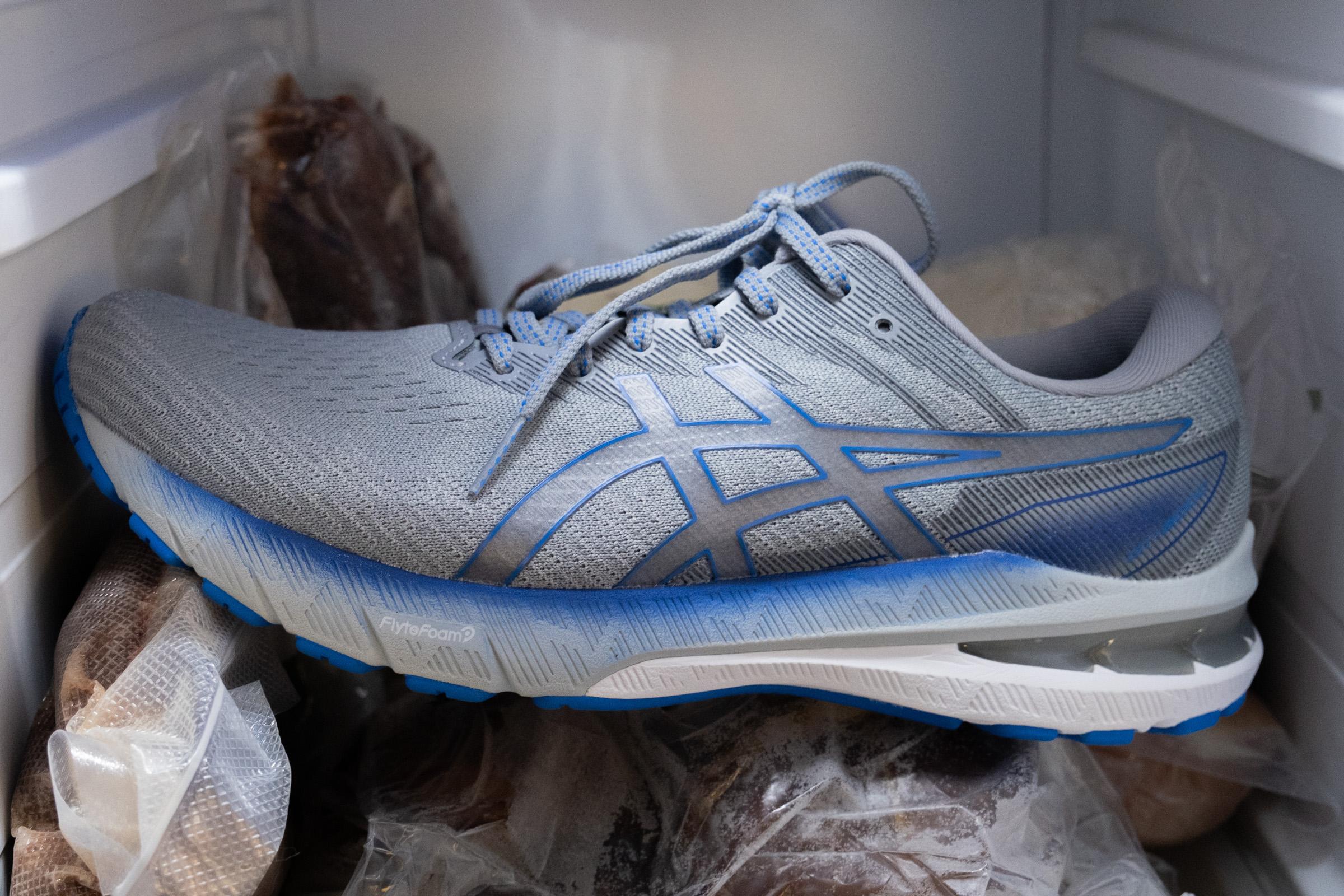
Unbox and go thanks to its soft flexing design. At 22.1N the shoe is below average (37N) for stiffness. Just beware that in cold temps the softer foams do stiffen up considerably. This shoe measured 34.5N in cold temps, an increase of 56.1% in overall stiffness.
Light for a stability shoe
At 9.9 ounces (281g) it’s a decent weight for a stability shoe. But in the grand scheme of things, nearly 10 ounces is no featherweight.
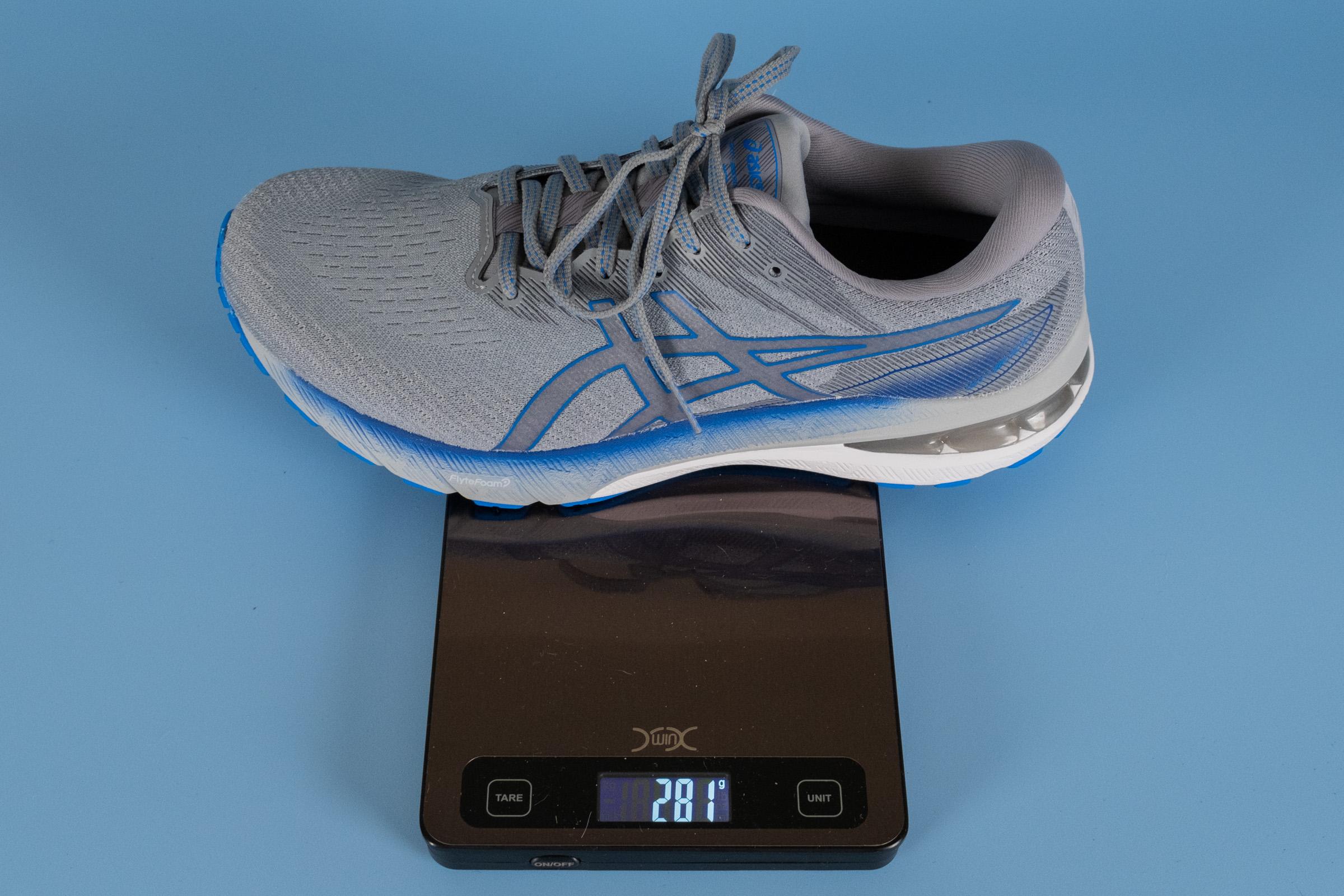
Respectable for its category, but there are lighter shoes out there.
Grip and durability
The GT 2000 10 has a pretty standard ASICS outsole, which is a good thing. The AHAR compound is long-lasting with more dense rubber placed strategically to ensure long wear in the right places and plenty of flex in other areas.
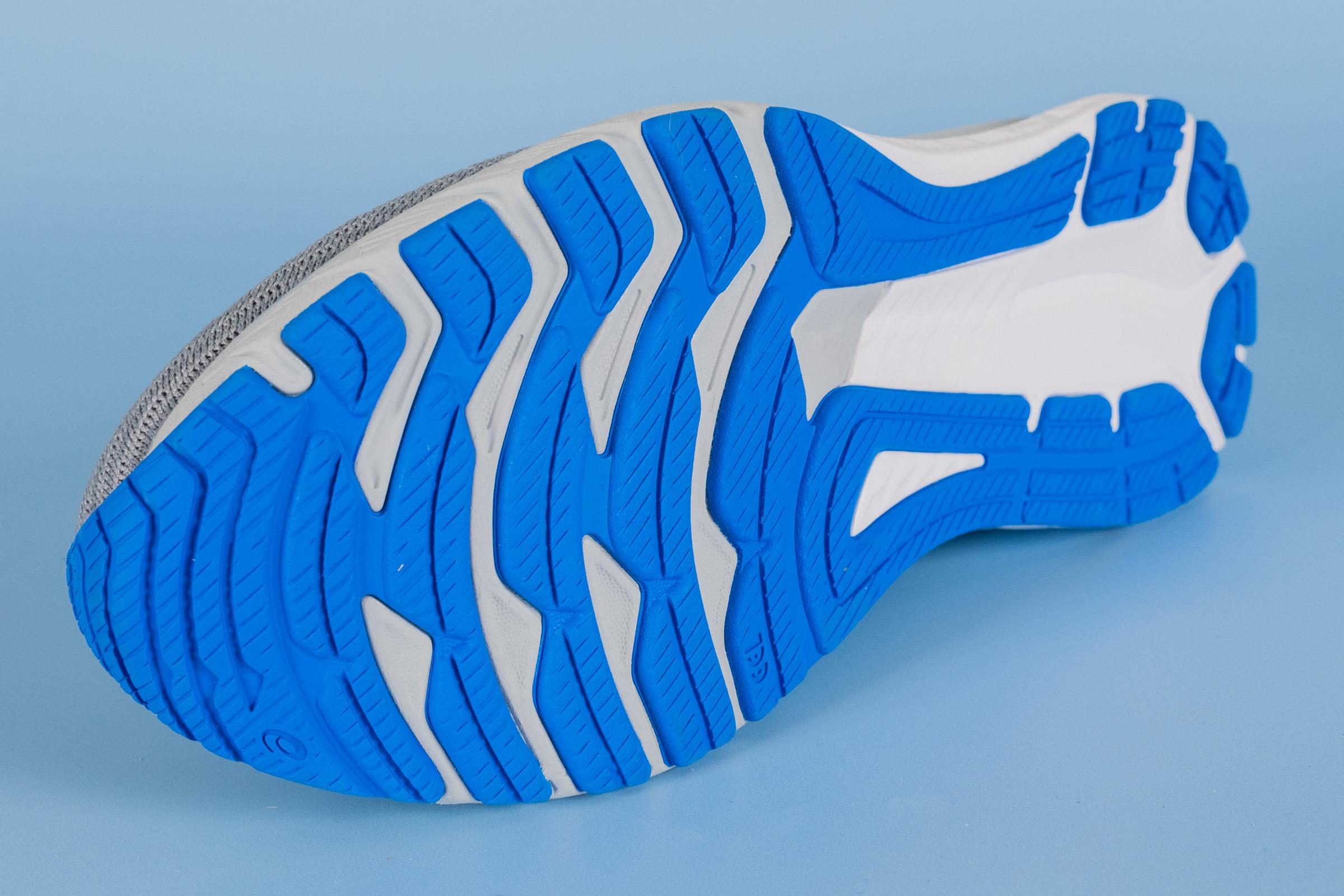
Grip is solid as well. I have yet to feel like these outsoles from ASICS wear down prematurely or struggle on road runs in any condition.
ASICS GT 2000 10 runs hot
The mesh upper is breathable, but mostly just in the toe box. There’s a lot of layers of fabric in this shoe, and a ton of foam padding all around.
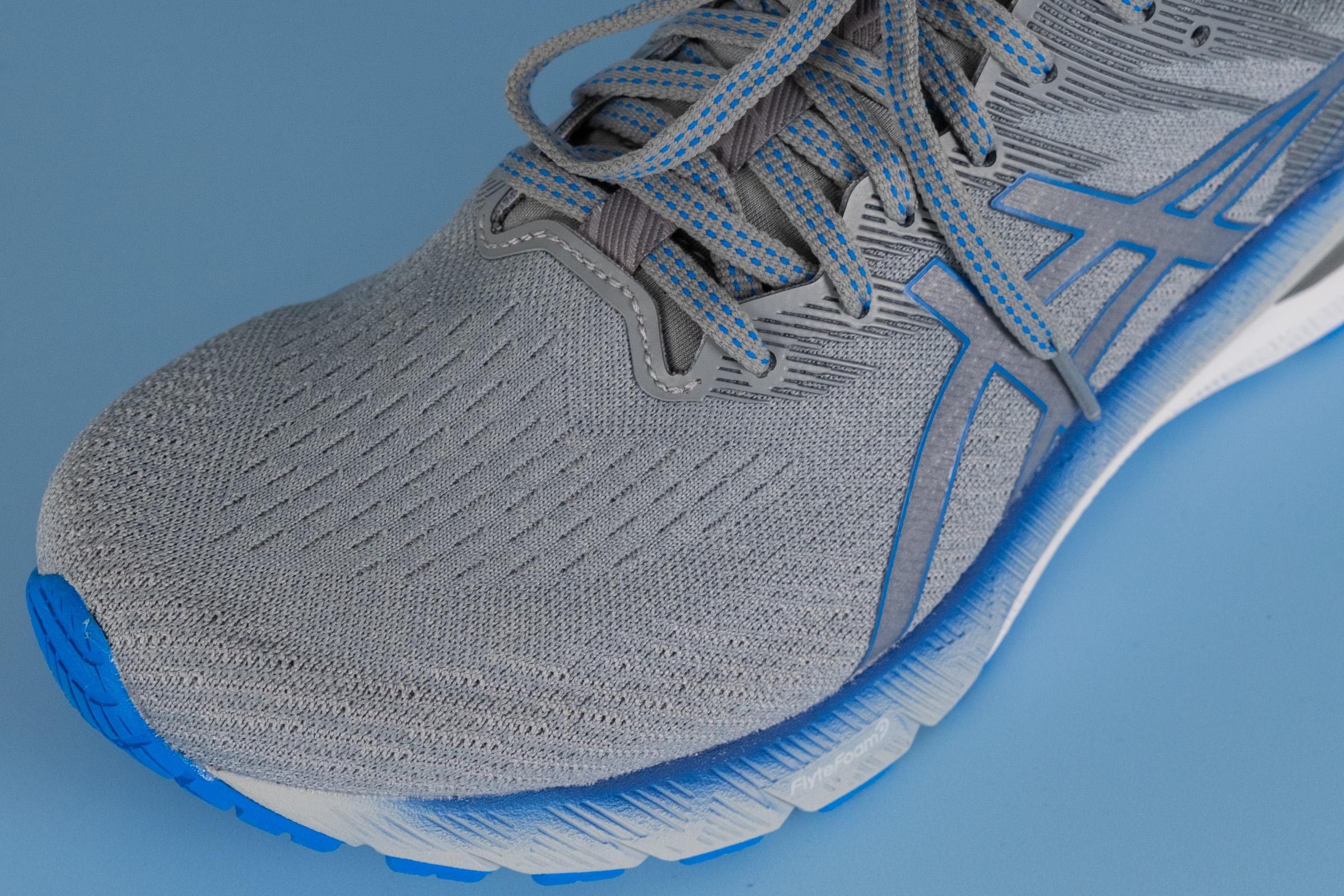
It makes for a plush feeling shoe, but a warm one. Runs a bit hot in my opinion.
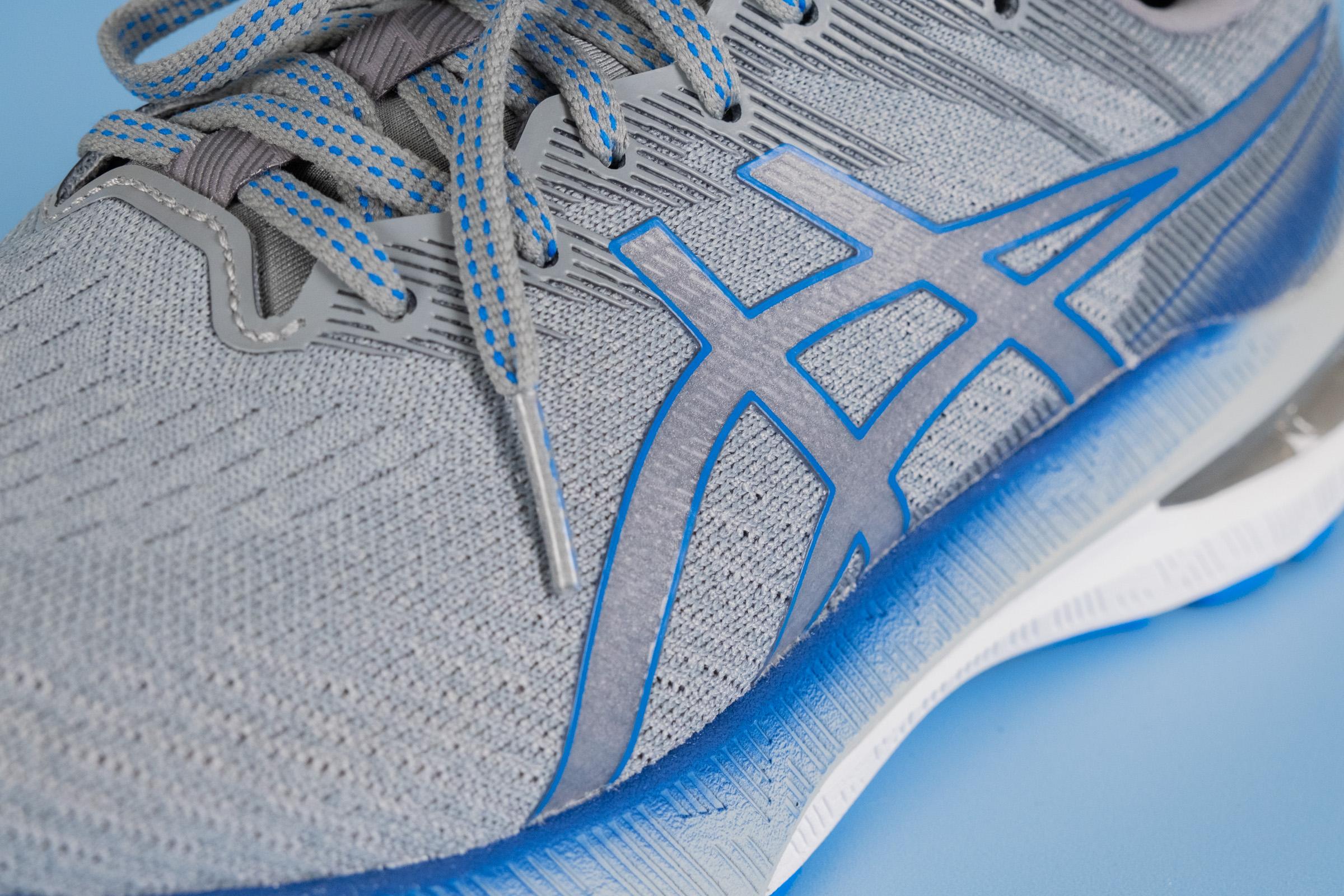
Price is decent
At $130, the GT 2000 10 is cheaper than the Kayano and Kayano Lite and may be a good option to save a few bucks compared to the Kayano.
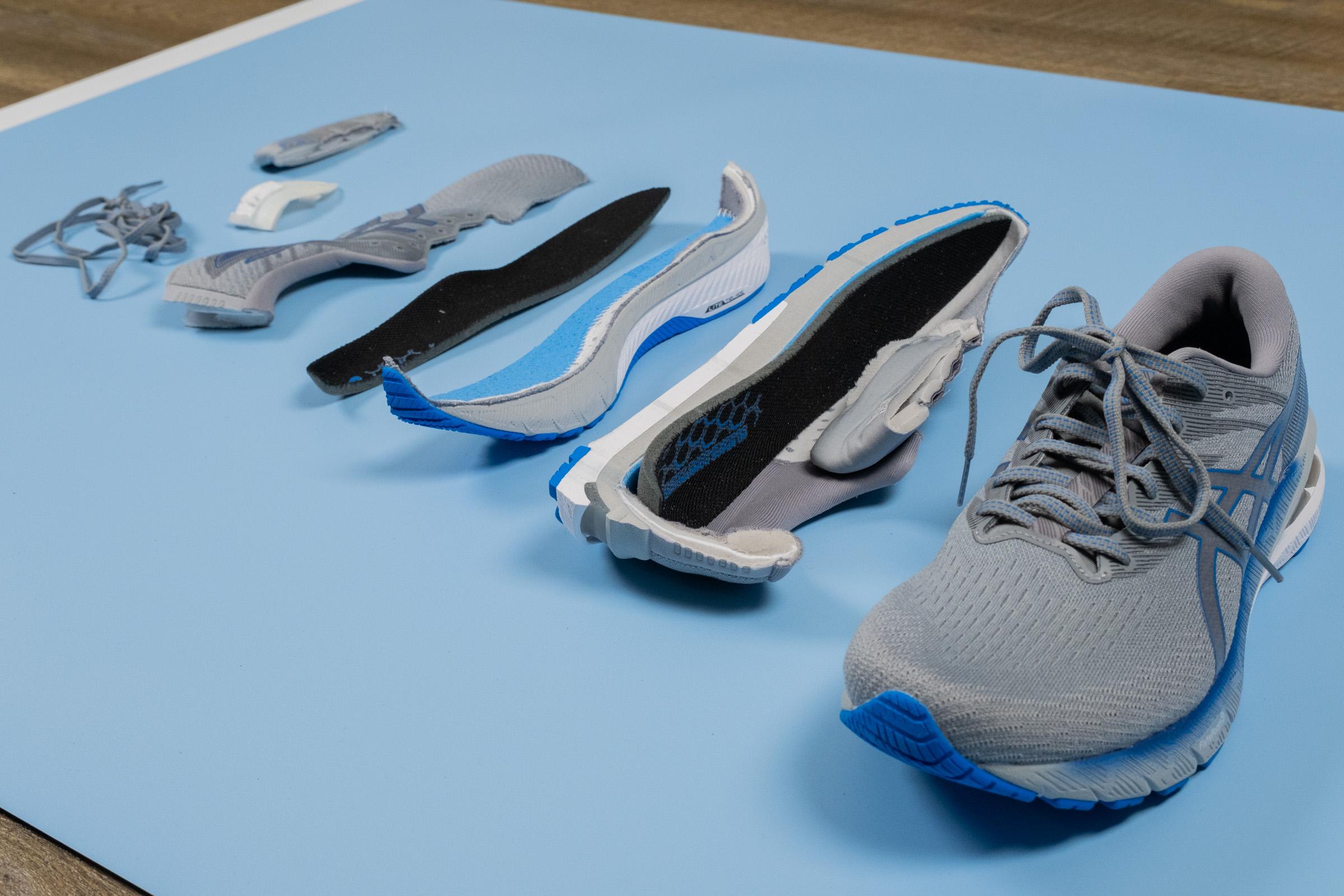
Personally, I think the Kayano Lite is a bit snazzier and more fun to run in than either of the classic gel-totting stability shoes, but I like shoes from the future not the past!
Night running is kinda a go
ASICS did a decent job on the heel of this shoe with some highly reflective elements, but the sides of the shoe lack any visibility in the dark. Be careful.
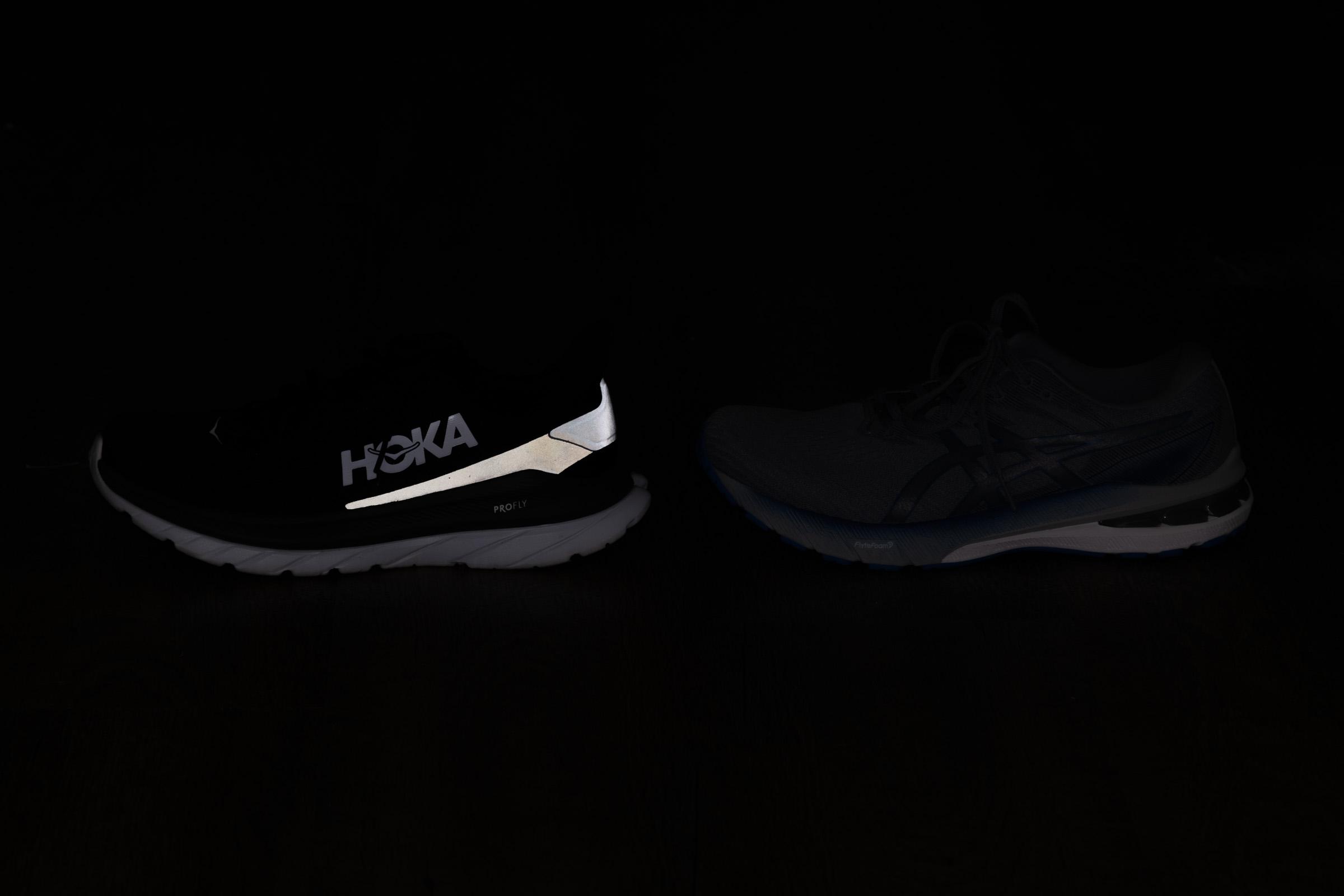
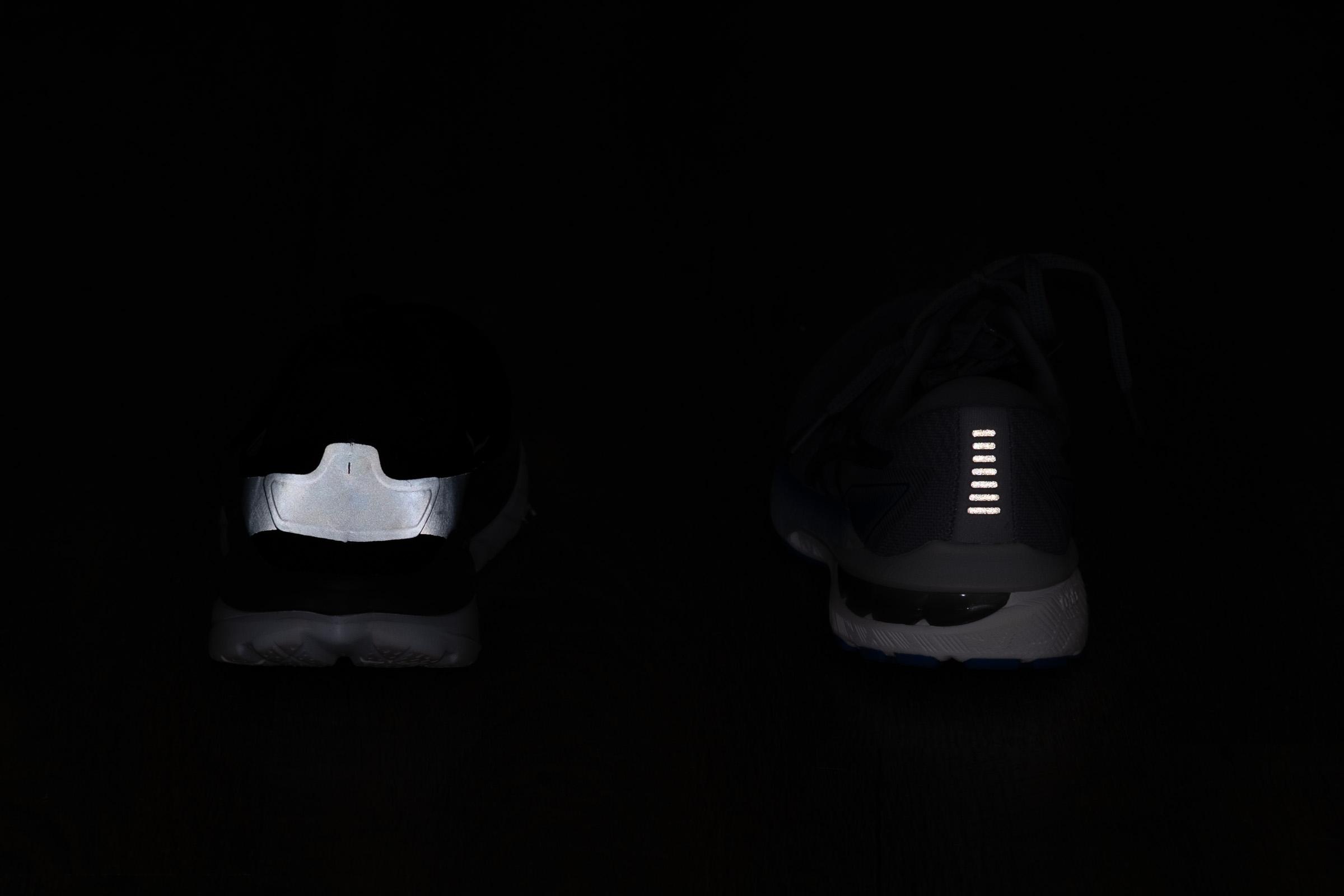
Conclusion
If you’re looking for a decent daily trainer that has some nice updates the GT 2000 10 may fit the bill.
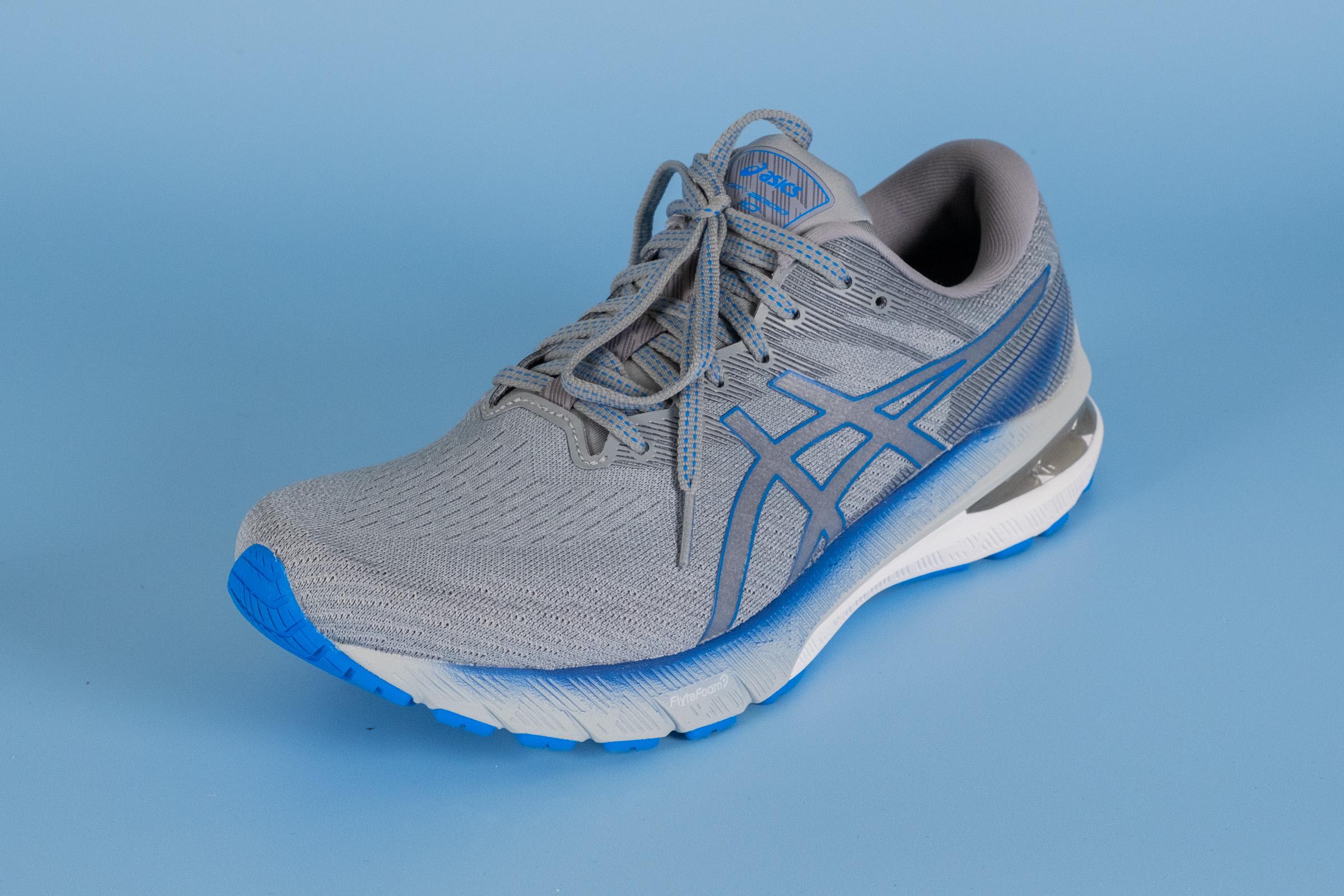
For those that need a bit of stability control without anything too fancy or distracting check out this trainer.

